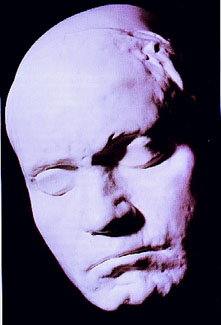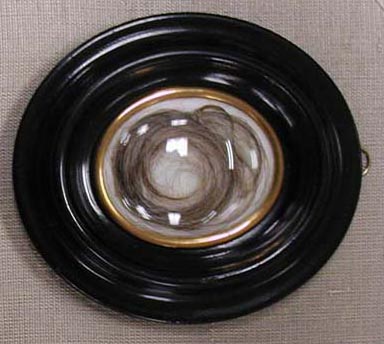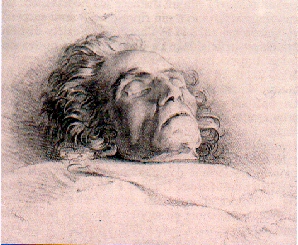The following are impressions of Beethoven as a Person:
"Beethoven was short, but broad-framed. Until his early thirties he was slim... [he had] penetrating brown eyes beneath a broad forehead and thick eyebrows. His ruddy complexion bears the scars of childhood smallpox, his mouth is shapely, and his chin has a cleft which became more marked in later years. ...
In his late thirties Beethoven became stockier." Grillparzer writes in 1823: "I first saw Beethoven in my boyhood years - which may have been 1804 or 5.... Beethoven in those days was still lean, dark, and contrary to the habit in later years, very elegantly dressed... One or two years later I was living with my parents in Heiligenstadt, near Vienna. Our dwelling fronted on the garden, and Beethoven had rented the rooms facing the street... My brothers and I took little heed of the odd man who in the meanwhile had grown more robust, and went about dressed in a most negligent, indeed even slovenly way."
Rockel, a singer, wrote of a visit to Beethoven in 1806:
"[In his room] was placed the mighty bathing apparatus in which the Master was laving his powerful chest... and I had the opportunity of admiring his muscular system and sturdy bodily construction. To judge by the latter the composer might look forward to growing as old as Methuselah, and it must have taken a most powerful inimical influence to bring the strong column to so untimely a fall."
Beethoven was clumsy. Ries wrote:
"Beethoven was most awkward and bungling in his behaviour; his clumsy movements lacked all grace. He rarely picked up anything without dropping or breaking it... Everything was knocked over, soiled, or destroyed. How he ever managed to shave himself at all remains difficult to understand, even considering the frequent cuts on his cheeks. - He never learned to dance in time with the music."



